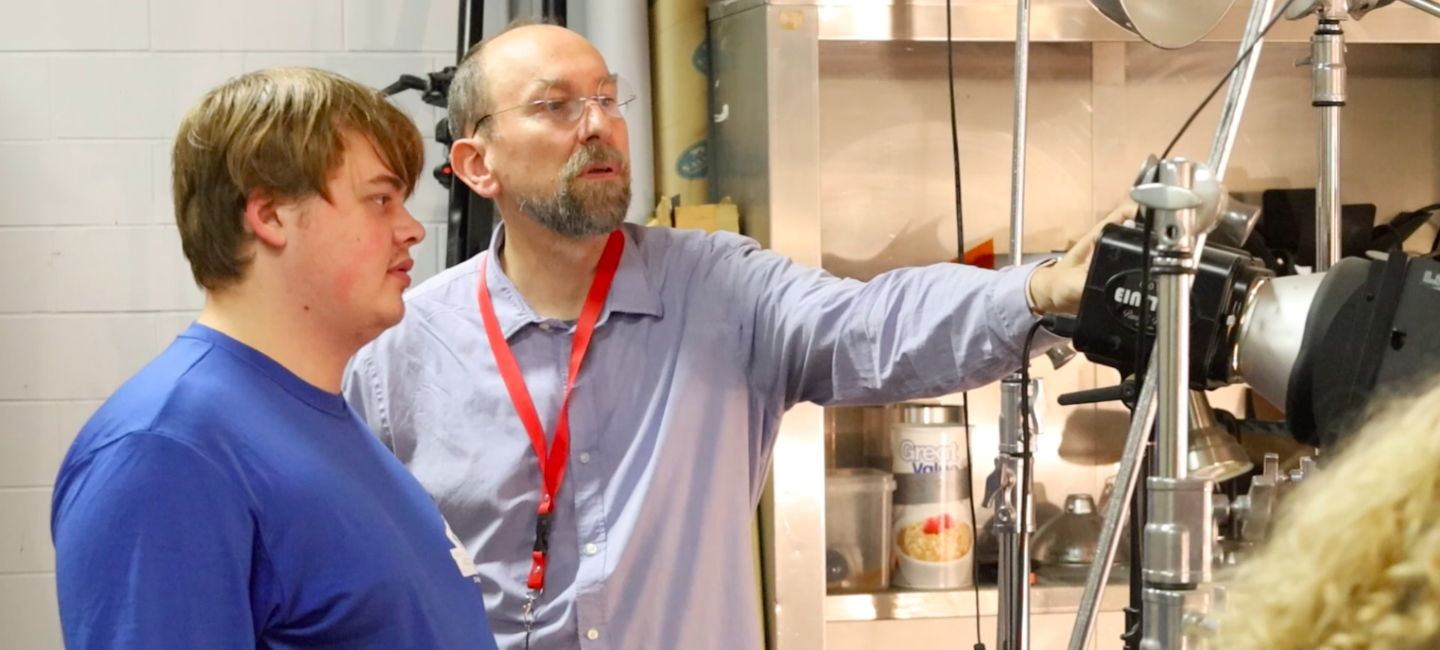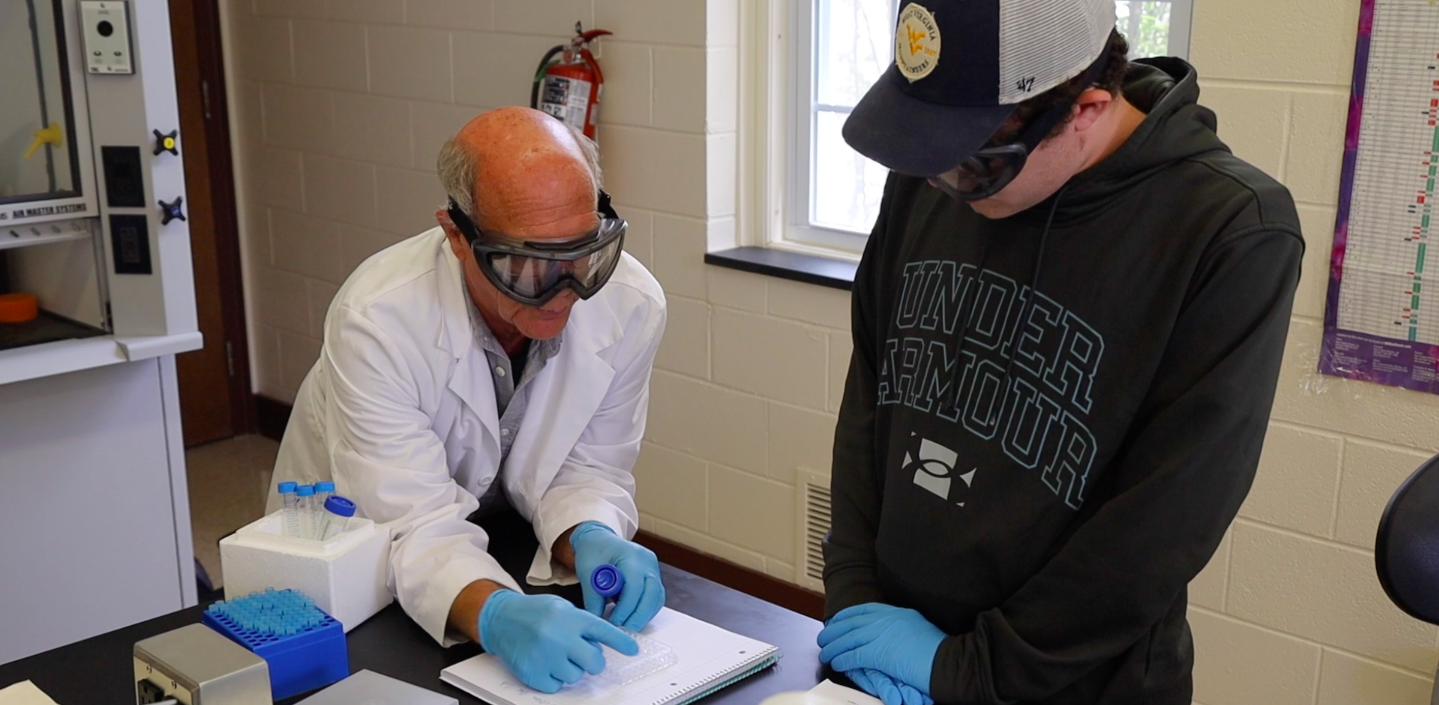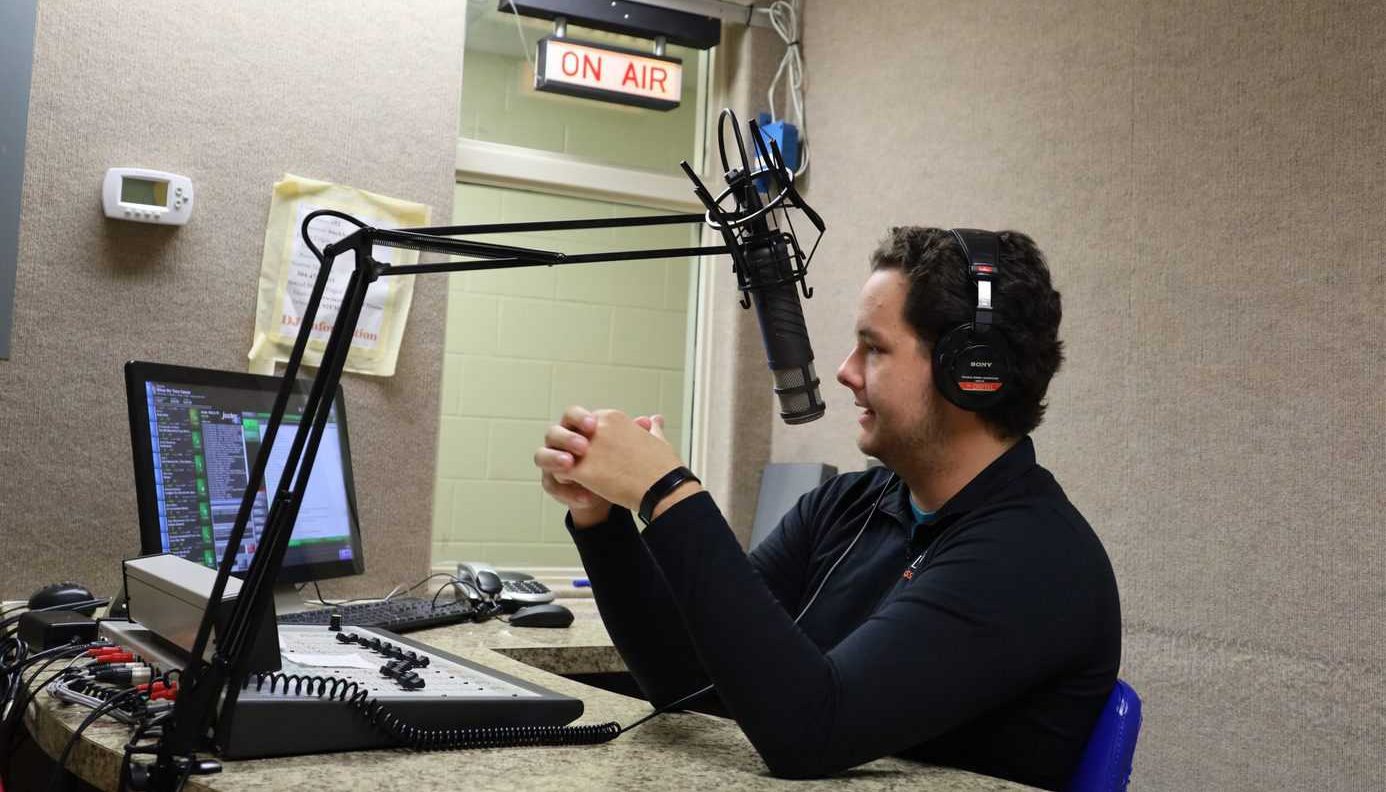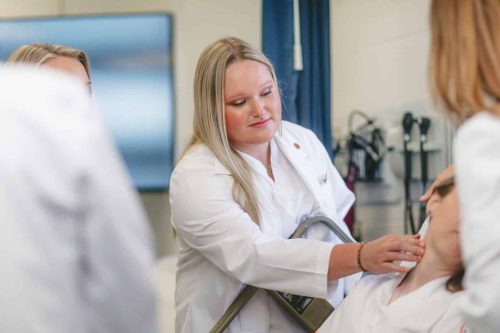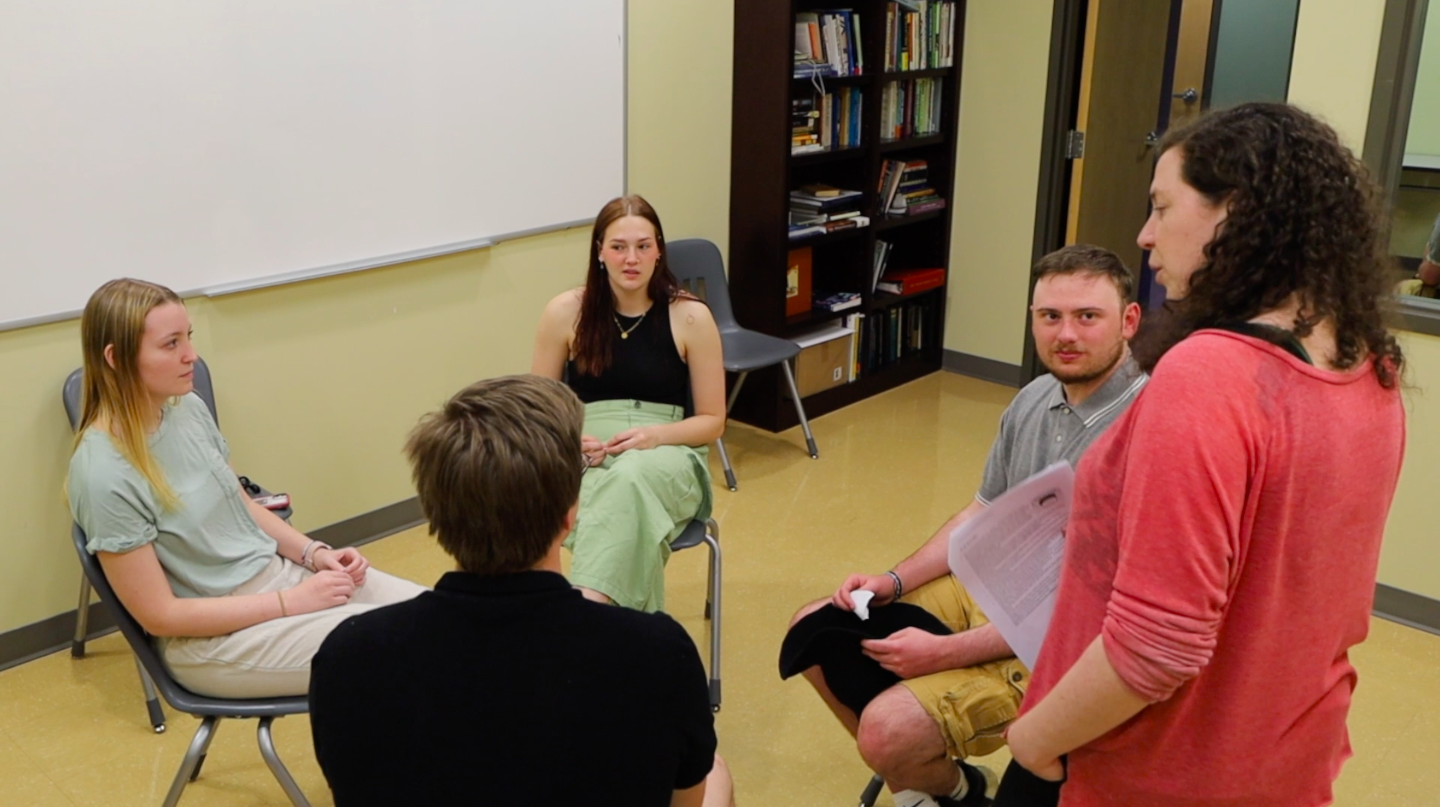护理
学院和学习项目
我们的学生受到的个人关注对他们的成绩有不可否认的影响. 小班授课,师生比例为13:1,营造出亲密的氛围, 关怀的学习环境造就了数量可观的富布赖特学者和其他显著的学术成就.
学生们学习严格的课程, 是什么让毕业生进入这个行业更安全, 具有批判性思维的熟练从业者, 有效的沟通, 也是护理加拿大28网址学习的基础.
护理学院的使命是提供可访问的, 为本科生和加拿大28网址提供高质量的护理教育, preparing them to be reflective healthcare leaders and scholars able to respond to the growing complexity in the healthcare system. 这一使命将通过提供创新来完成, nursing education programs that meet the needs of society and incorporate best-practice 证据 and contemporary nursing science. 使命的基本信念, 发展, 课程设置包括:对人的基本尊严的理解, 护理学的本质是科学, 艺术, 以及为人类服务这一学科的关怀本质, 视健康为随时间和生活环境而变化的动态实体的观点, 以及终身教育的过程.
Undergraduate and graduate study in nursing prepares women and men to promote human thriving in the care of diverse persons through culturally-sensitive, 循证实践. 人们赋予知识的独特意义, 语言, 行为影响护理实践. 人们在与个人的伙伴关系中蓬勃发展, 家庭, 社区, 以及尊重他人尊严和独特性的人群, 认识到每个人的优雅和赋权的能力.


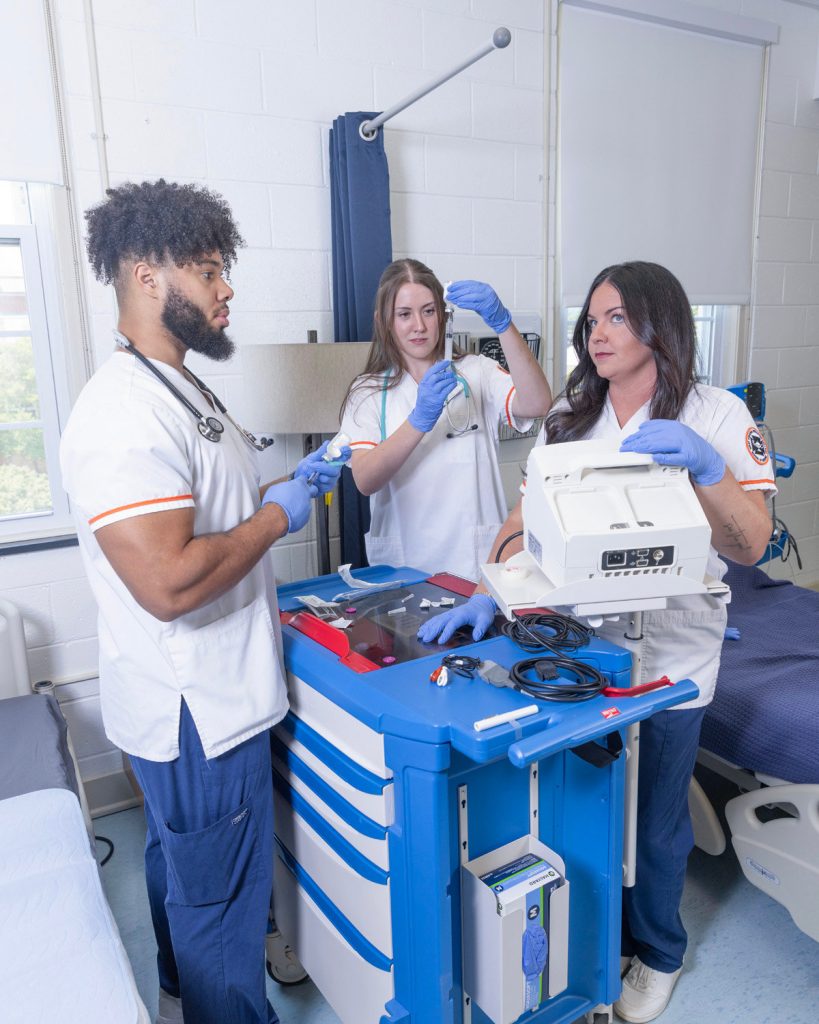
-
男女学者计划
蒙学者计划为护理学院提供奖学金援助
和他们的护理系学生
之后在Mon卫生系统工作
完成学位.需求
要申请Mon学者项目
申请人必须具备:- 累计2.0的绩点
- 如果学生的大学课程少于12学分,高中GPA为3分.0是必需的
居住在华盛顿州、马里兰州、俄亥俄州或宾夕法尼亚州 - 被WVWC护理学院录取
应用
完成在线Mon Scholar申请
可以在: 男女学者计划提交你收到的录取通知书
WVWC护理学院.问题? 联系
Recruitment@monhealthsys.org -
项目的目标
The goals of 西维吉尼亚州 Wesleyan School of 护理 reflect the overall mission of the program to enhance the health and quality of life for all.
发展符合社会需求的学术课程,并将最佳实践纳入护理教育.
+提供支持, 学院环境,鼓励卓越的教与学, 专业发展, 以及教师/学生奖学金.
+培养能够改善临床实践结果的领导者, 卫生政策, 以及护理提供方法.
+准备毕业生能够提供安全, 以证据为基础的, culturally-competent, 以病人为中心的护理,反映临床道德判断和跨专业合作.
培养学生求知欲和求知欲.
Tina Straight, DNP, MSN编辑. CNE,注册护士,护理学院院长,副教授
办公室:米德尔顿大厅
电话:304-473-8504
电子邮件:straight_t@stewmoore.com
Amy Coffman, DNP, MSN, APRN-BC, FNP,主任,加拿大28网址项目和副教授
办公室:米德尔顿大厅
电话:304-473-8227
电子邮件:coffman_a@stewmoore.com
Shannon Bosley, DNP, MSN,注册会计师,助理教授,仿真主任
办公室:米德尔顿大厅120
电话:304-473-8221
电子邮件:bosley_s@stewmoore.com
特里萨·波林,DNP, MSN, APRN-BC, FNP,副教授
办公室:米德尔顿大厅
电话:304-473-8220
电子邮件:polinh_t@stewmoore.com
Valerie Jordan, BSN,注册护士,客座助理教授
办公室:米德尔顿大厅
电话:304-473-8231
电子邮件:乔丹.v@stewmoore.com
金伯利·鲍曼,MSN,注册护士,助理教授
办公室:米德尔顿
电话:304 - 473
电子邮件:鲍曼.k@stewmoore.com
Ann Whitehair, MSN, APRN-BC, FNP,临床讲师
办公室:米德尔顿
电话:304 - 473
电子邮件:whitehair.a1@stewmoore.com
兼职教师
- Janet Teachout-Withersty, DNP, CNS,名誉副教授
- 艾米·霍金斯,MSN,注册护士
- 帕特里夏·摩尔,MSN,注册会计师
- 苏珊·赖斯,博士,医学硕士,注册护士
-
护理- B.S.N.
课程一:整合文科知识, 护理科学及相关学科为临床实践提供依据,做出合理的临床判断.
水平能力:
将学术成果转化为实践:整合证据, 临床判断, 跨专业视角和患者在计划中的偏好, 实施和评估护理结果.
- 二年级水平能力:检查信息来源并认识到临床判断的影响, 跨专业视角和患者在计划中的偏好, 实施和评估护理结果.
- 初级能力:运用证据, 临床判断效果的反思, 跨专业视角和患者在计划中的偏好, 实施和评估护理结果.
- 高级能力:结合证据, 临床判断、跨专业视角和患者在计划中的偏好, 实施和评估护理结果.
Background for Practice: Integrate theories and concepts from liberal education to build an understanding of the human experience.
- Sophomore Level Competency: Recognize the role of theories and concepts from liberal education in building an understanding of the human experience.
- Junior Level Competency: Apply selected theories and concepts from liberal education to an understanding of the human experience
- Senior Level Competency: Incorporate theories and concepts from liberal education to build an understanding of the human experience.
SLO II: Effectively communicate and collaborate as a member and leader within the interdisciplinary healthcare team to improve patient care outcomes
水平能力:
Inter-professional collaboration and communication to provide quality patient-centered care: Demonstrate effective inter-professional communication and collaboration to provide quality patient-centered care.
- 能力要求:描述自己的长处, 作为团队成员的局限性和价值.
- 初级能力:与团队成员沟通, 根据团队和环境的需要调整自己的沟通方式.
- Senior Level Competency: Demonstrate team-building and collaborative strategies when when working with interprofessional teams.
SLO III:对个人的直接和间接护理进行道德管理, 家庭, 组, 要促进的社区和人口, 保持和恢复健康.
水平能力:
综合护理实践学士学位:在动态的专业角色中展示不断发展的能力, 多元文化的, 全球化的社会.
- 二年级水平:激发病人的价值观, 偏好和需求作为临床访谈和护理计划实施的一部分.
- 初级能力:进行全面和专注的身体锻炼, 行为, psych-social, 精神评估使用发展和文化上合适的方法.
- 高级能力:全面实施, 符合当地文化的, 以病人为中心的护理,反映了对人类成长和发展的理解, 病理生理学, 药理学, 以及在所有医疗保健机构中对人的整个生命周期进行医疗和护理管理
目标四:提供以人口为重点的服务, culturally-competent, 以促进健康、预防疾病和伤害为重点的整体护理.
水平能力:
Clinical Prevention and Population Health for Improving Health: Assess protective and predictive factors that influence the health of individuals, 家庭, 群体和人口.
- Sophomore Level Competency: Discuss ways to assess health/illness beliefs and 值 and personal health practices of individuals 和家庭.
- 初级能力:评估健康/疾病信念, 值, 个人的态度和行为, 和家庭.
- 高级能力:运用循证实践指导健康教学, 健康咨询, 筛选, 外展, 疾病和爆发调查, 转诊和随访贯穿整个生命周期.
SLO V:在使用人力方面表现出领导和管理技能, 财政, 提供安全的物资和信息资源, 优质护理.
水平能力:
Organizational and Systems Leadership; Quality Improvement and Safety: Use leadership skills and knowledge of healthcare to advance high quality, 安全专业实务.
- 二年级水平能力:识别安全发展的领导技能, 专业医疗实践.
- 初级能力:开始运用领导技能和医疗保健知识来提高质量, 安全专业实务.
- *运用领导技能和医疗保健知识实现高质量, 安全, 专业实践.
卫生政策和宣传:展示卫生保健政策的基本知识, 融资, 监管环境,倡导安全的专业实践.
- 二年级水平能力:识别影响专业实践的医疗保健政策.
- 初级水平能力:讨论医疗保健政策和融资与安全专业实践之间的关系.
- 高级能力:评估医疗保健政策, 融资, 监管环境影响安全的专业实践.
Informatics and Healthcare Technologies: Manage information and technology to deliver 优质的病人护理 in a variety of settings.
- 二年级水平能力:讨论为什么信息和技术技能对安全至关重要, 优质的病人护理.
- Junior Level Competency: Contrast benefits and limitations of different information and technology systems and their impact on 安全ty and quality. 在电子健康记录中记录和计划患者护理.
- 高级水平的能力:使用信息管理工具来监测各种环境下的护理结果.
SLO VI:表现出对专业成长和进步的承诺, 重视终身学习和提高专业水平.
水平能力:
提升职业素养和职业价值观:彰显职业道德标准, 道德和法律行为.
- Sophomore Level Competency: Discuss professional standands and professionalism in nursing including the inherent 值 of altruism, autonmy, 人的尊严, 诚信与社会公正.
- 初级能力:表现出专业精神, 包括对外表的关注, 举止, 尊重自己和他人, 注意与患者、家属以及护理人员之间的专业界限.
- 高级胜任力:识别个人, 影响个人和职业选择和行为的专业和环境风险
-
护理学- M.S.N.
SLO I:整合科学理论和研究, 社会科学, 人文学科, 并将护理纳入跨学科实践,促进护理安全有效.
- 将学术成果转化为实践:整合理论, 证据, 临床判断, research and inter-professional perspectives using translational processes to improve practice and associated health outcomes for patients.
- 科学与人文实践背景:综合护理科学与伦理学知识, 生物物理, 社会心理, 分析, 为不同人群设计高级护理的公共卫生和组织科学.
SLO II:领导跨专业团队改善患者和人群健康结果
- Interprofessional 沟通 and Collaboration for Improving Patient and Population Health Outcomes: Employ effective collaborative strategies and communication skills in leading intra-professional and inter-professional teams in the design, 协调, 以及以病人为中心的护理评估.
SLO III:在道德高级护理实践中展示专业的临床能力.
- 硕士护理实践:综合包括生态在内的概念, 健康的全球和社会决定因素, 遗传学和基因组学原理, 以及流行病学数据的设计, 提供和评估与文化相关的临床干预和策略.
战略目标四:为弱势群体设计以人口为重点、具有文化能力的保健服务.
- 临床预防和人口健康促进健康:使用文化敏感方法, 在复杂情况下对健康和疾病参数进行全面和系统的评估.
SLO V:在诸如基于证据的最佳实践等战略的应用中应用领导原则, performance improvement and quality assurance activities and informationt echnology initiatives to improve patient care and health systems.
- Organizational and System Leadership; Quality Improvement and Safety: Operationalize 安全, 优质的医疗服务, 运用领导技能和道德决策提供文化响应高质量的护理.
- 卫生政策和宣传:分析卫生政策对卫生保健结构和筹资的影响, 医疗实践和医疗结果.
- Informatics and Healthcare Technologies: Analyze current and emerging technologies and develop strategies to support 安全 practice environments and reduce risk while optimizing patient 安全ty, 成本效益和健康结果.
SLO VI:制定反映专业发展承诺的职业目标, 终身学习,继续学习.
- 专业精神和专业价值观:通过领导为护理专业做出贡献, 奖学金和实践活动.
-
加拿大28网址证书- FNP
-
护理-DNP
战略规划一:将科学和护理知识转化为促进弱势群体的最佳健康, 不同的设置, 和系统.
- 实践的科学基础:将护理科学与伦理学知识相结合, 生物物理, 社会心理, 分析, 为不同人群设计高级护理的公共卫生和组织科学. (DNP基本I)
- Clinical Scholarship and Analytical Methods for Evidence-Based Practice: Translate the results of 循证实践 protocols, 针对健康差距和弱势群体的系统变革和卫生保健举措. (DNP基本III)
SLO II:领导跨专业团队实现变革并改善患者和人群的健康结果
- Interprofessional Collaboration for Improving Patient and Population Health Outcomes: Employ effective collaborative strategies and communication skills in leading intra-professional and inter-professional teams in efforts to improve patient and populatin health outcomes for vulnerable populations. (DNP基本VI).
SLO III: Advance the practice of nursing through clinical scholarship and scientific inquiry to transform health care practice 和系统 in one’s area of specialization.
- dnp级护理实践:采用先进水平的临床判断, 系统思考, 以及设计中的责任, 交付, 评估循证护理,以改善患者和系统的结果. (DNP基本VIII)
战略目标四:为弱势群体设计以人口为重点、具有文化能力的保健服务.
- Clinical Prevention and Population Health for Improving the Nation’s Health: Critically apprasise concepts including ecological, 健康的全球和社会决定因素, 遗传学和基因组学原理, 和流行病学数据来加强设计, 为弱势群体提供和评估与文化相关的临床干预措施和策略. (DNP基本VII)
SLO V:承担领导角色,并与其他专业人员合作,在复杂系统中实现变更.
- Organizational and System Leadership for Quality Improvement and Systems Thinking: Ensure accounability for 优质的医疗服务 and 安全ty of patient populations; apply leadership skills and ethical decision-making in the provision of culturally-responsive high 优质护理. (DNP要点II)
- Health Care Policy for Advocacy in Health Care: Critically analyze the impact of health policies on the structure and 融资 of health care, 医疗实践和医疗结果. (DNP基本V)
- Information Systems/Technology and Patient Care Technology for the Improvement and Transformation of Health Care: Provide leadership in the analysis of current and emerging technologies. 制定战略,支持安全的实践环境,同时降低风险并优化患者安全, 成本效益和积极的健康成果. (DNP基本IV)


